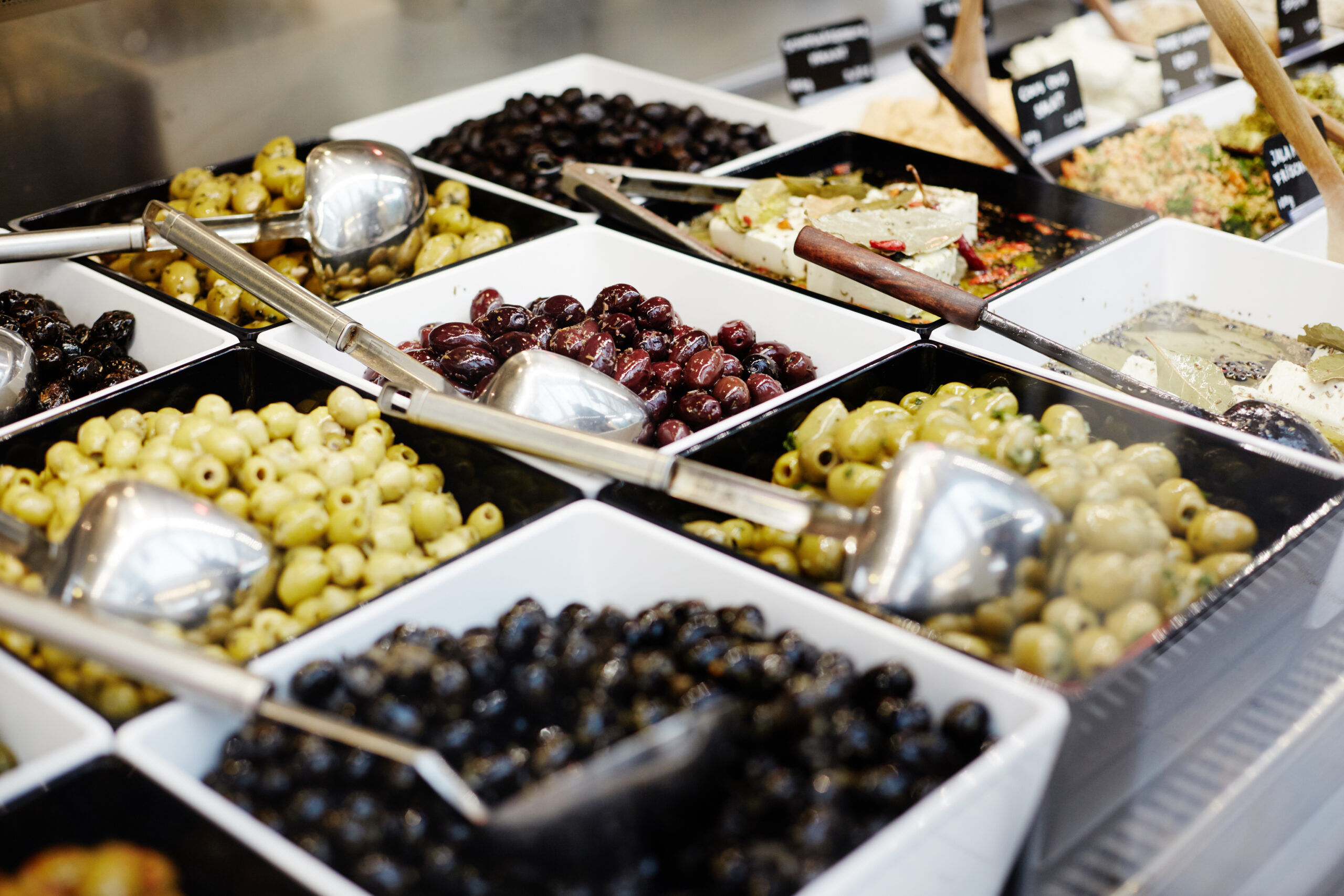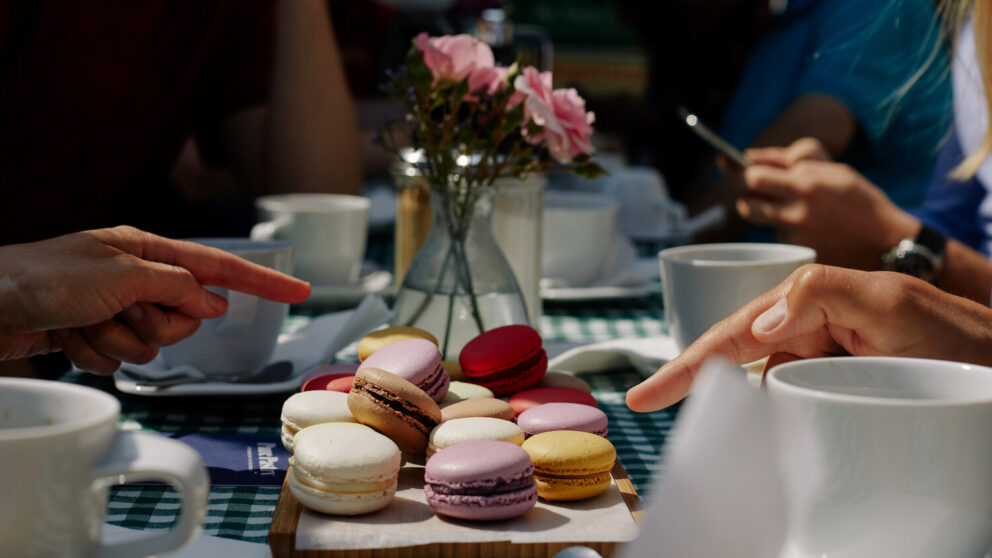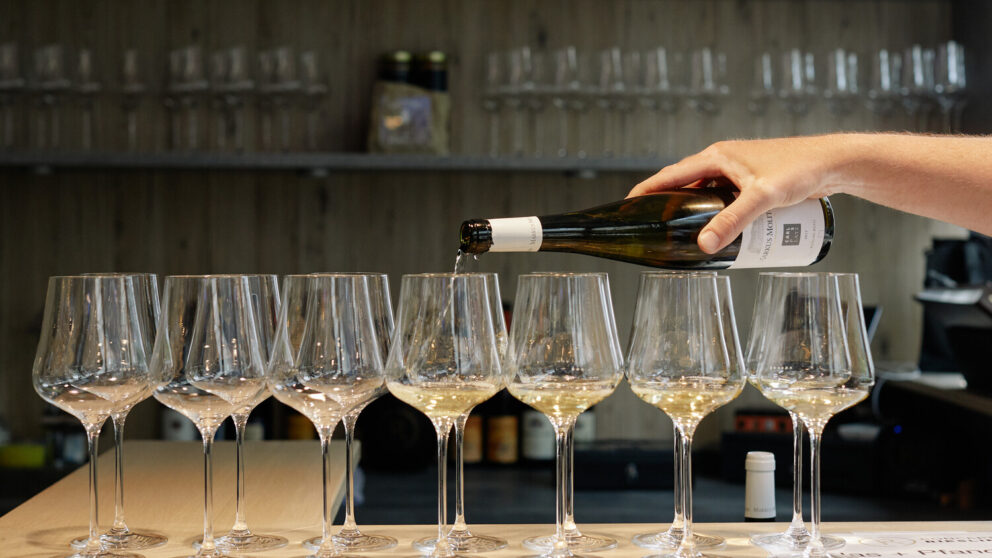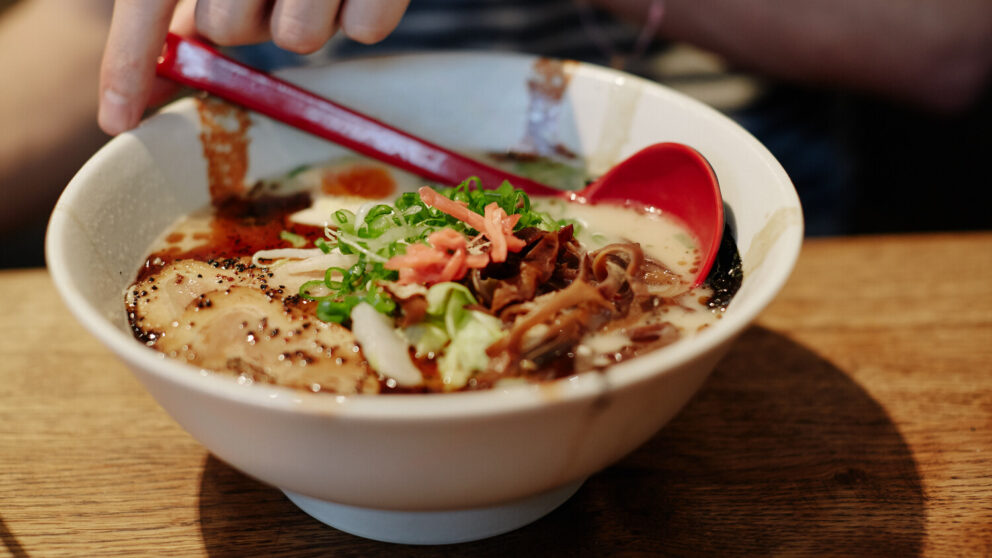
Six deli products that offer a little taste of heaven
Six deli products that offer a little taste of heaven
Time to tempt your taste buds
What are the hallmarks of a deli product? Is it particularly refined flavours, or rather a pure, unadulterated taste? Is it more about the quality of the ingredients or the creativity of the producers? Or is it maybe both? We set out across Düsseldorf to find out, uncovering many a culinary delight along the way, even away from the foodie hotspot that is Carlsplatz. What we discovered is that the delicatessen business is often a family affair, and that a healthy dose of passion for it is a must. Whether sweet or sour, mediterranean or local, or food or drink, more often than not the key to a product’s quality is the people behind it.
Tiramisù della nonna
Few things are more Italian than tiramisù, especially when it’s tiramisù della nonna. This classic might not be the only reason why CENTRO, run by the Soriano family for 30 years, has such a loyal following, but it’s certainly a delicious one. The nonna, or grandma, is Mirella, and at 87 years old there’s little that she doesn’t know about authentic dolci. Little surprise then that some of the other highlights in this deli on Nordstrasse include cannoli alla siciliana and zuppa inglese. The family recipes are a secret, of course. But what we do discover is that the tiramisù is made fresh in-house every day. “All ingredients are sourced from Italy,” says granddaughter Sarah. Together with her brother Vito, she is the third generation in this family business, which father Corrado and mother Anna established in 1992. “And the same applies across our product range.” It includes a broad selection of fresh and packaged speciality products, and wines from all regions of Italy. “We are very careful about what we pick,” says Sarah, adding that they receive up to 50 enquiries every day from manufacturers wanting to sell their products in CENTRO.
Olio extra vergine di oliva
Oil is a science in itself, and in the kitchen it’s the basis for many, if not most, dishes. That is why trust is paramount, especially when it comes to olive oil, as extra virgin, the highest quality you can get, is one of Germany’s most popular cooking oils. After all, it might say organic on the label, but the differences in quality can be quite astounding, as the German consumer organisation Stiftung Warentest recently reported. Fortunately, when you buy a Ghorban product you can be confident that the company’s organic oils are sourced from its own olive groves in Murcia, Calabria and Crete. The olives are pressed on site and then processed in the Wuppertal factory of this mediterranean delicatessen company. The oil is then bottled in simple but beautifully glazed metal tins that protect the contents from light and ensure a longer shelf life. The range includes oils suitable for high heat, a spicy oil with a smoky peperoncini note, a fragrant basil oil and a mildly fruity variant for which the freshly picked olives are pressed with sun-ripened wild lemons from southern Italy. None of the oils contain any artificial additives. You can try many of the company’s other products, as well as goods from mostly organic producers, in the bistro adjacent to the Ghorban store on Heinrich-Heine-Allee.
German gin
Another product that requires a great deal of expertise is gin, and the team at Naturburschen certainly has plenty of it. Based in the district of Flingern, these deli specialists host popular wine, champagne, whisky and gin tastings. The team’s fame has spread well beyond the district’s borders, so much so that booking early is recommended. Tastings are usually held on a Saturday between 5pm and 7pm in the Naturburschen store on Birkenstrasse. The gin tasting features five selected gins and five different varieties of tonic water. The focus is on gin from small German producers, such as DormaGIN from Cologne, winner of a gold medal at the World Spirits Awards, and Woodland Sauerland Dry Gin. You will also be given tips on what you can mix them with. And you can always discover the various gins in store at your leisure, of course. There are more than 70 to choose from. In addition to gin, Naturburschen stocks organic food, such as bread from the local Hercules bakery and wonderful cheeses.
French raw milk cheese
“While cheesemaking dates back a thousand years, pasteurisation is a relatively new process,” says Daniela Steinborn. “Whether the milk for a cheese has been pasteurised or not has a huge impact on flavour, consistency and digestibility.” Steinborn was working as a chef when she decided to establish the Feinkost & Petite Fromagerie deli almost ten years ago. She poured all the knowledge she had acquired and all the contacts to cheesemakers, farmers and cooperatives she had made into her retail business. The deli’s focus is on cheeses made from raw milk. Depending on the time of year, the store in Blücherstrasse in the Pempelfort district stocks 50 to 70 varieties. Overall, the product range includes 600 varieties, most of which come from France. The choice ranges from Epoisses AOP, a classic creamy cheese from Burgundy, and Mothais sur Feuille, a goat’s cheese that ripens inside a chestnut leaf, to Vacherin Mont d’Or AOP, often warmed and eaten like fondue. You can find out which one you prefer during a cheese tasting. These are accompanied by wine, as Tischdame also sells wine, crémant, champagne and cidre. And then there are the many types of honey, the mustard from Beaune, the pâtés, the rillettes and more.
Handmade chocolates
Here’s another temple to good taste that has a certain Francophile vibe, an initial impression that is mainly down to its antique hand-painted Provençal furniture. But what’s on display in the cabinets and on the shelves, small tables and sideboards is in fact handmade in Düsseldorf. Gut & Gerne is the name of this chocolate heaven, of which there are two outlets, one on Burgplatz square and the other in Brunnenstrasse in the Bilk district. The latter also sells a range of delicatessen. Katharina Reyer-Jekel took over the business from the previous owner in 2015, and last year started making her own chocolates for sale alongside products from Bonnat, Coppeneur, Gmeiner and other notable names from around the world. She has since added a small chocolate factory to the shop in the Old Town, where you can order a bespoke chocolate bar with a selection of 18 different ingredients, including candied mint blossom, pecan nuts and goji berries. “The chocolate is made with premium Trinitario cocoa, sustainably grown in the Dominican Republic,” Reyer-Jekel explains. Another speciality here are vegan chocolates from Kilian & Close.
Delicatessen to go
Düsseldorf also offers mediterranean food to go. Where? For example on Carlsplatz square. The ‘fladi’ sold by brothers Albors and Poolad Javaheri is a complete reinterpretation of the classic doner kebab. Most of the ingredients are freshly prepared and vegetarian, and are sourced from the big antipasti counter at the Feinkost Fladi deli. These are served in flatbreads made from either wheat and corn or a mix of rye, which a bakery in the nearby town of Mettmann bakes for the brothers. The flatbread is lightly grilled and covered with one or more homemade spreads, which include four cream cheese varieties, two feta cheese varieties, two aubergine varieties and a tuna cream. The fladi with Iranian-style saffron chicken, honey mustard cream cheese, tomato tapenade and grilled mushrooms is particularly popular. Several orders for it come in while we are checking out what’s on offer. The Javaheri brothers have come up with a creative way to carry on the family tradition, following in the footsteps of their parents who were delicatessen merchants over three decades ago. Of course, you can also buy all their tasty little items separately for your antipasti buffet at home.
Title image: Düsseldorf Tourism




